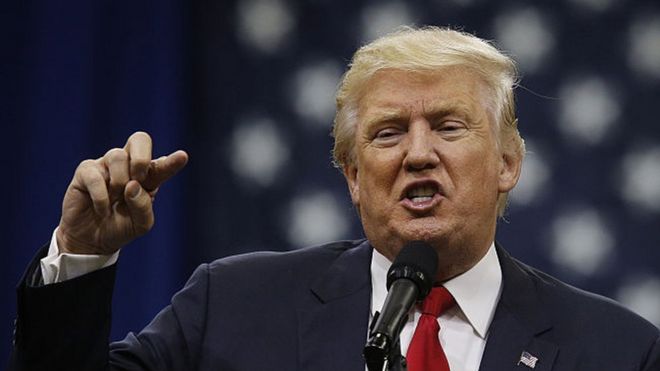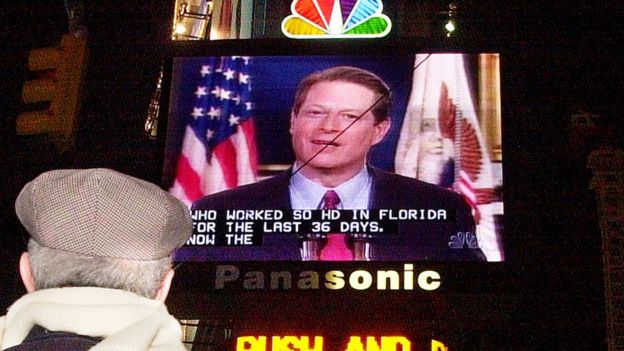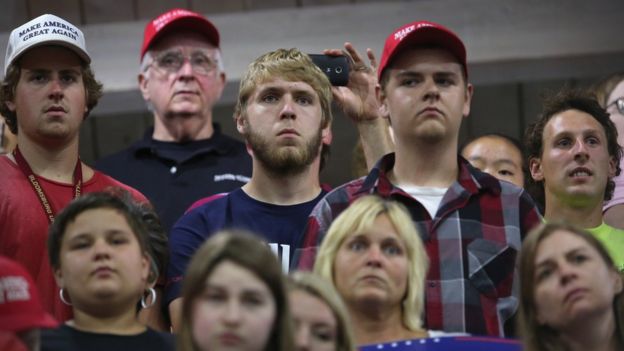|
Posted: 01 Aug 2016 02:15 PM PDT
In a summer of big tech deals, this could be counted as the most unexpected. Uber is selling its China operations to its bitter – and more successful – rival, Didi Chuxing, which controls 80% of China’s ride-sharing market. The repercussions of the deal will be felt far beyond China, affecting everything from Uber’s prospects for an IPO to the fate of its competitors in other markets.
The transaction will involve merging Uber China, mostly owned by Uber but also owned by search giant Baidu and others, with Didi’s operations. It resolves a costly battle for users that led Uber to burn through $2 billion in the past two years. Uber gets an 18% financial stake in Didi plus a $1 billion investment from the company. Both companies will hold a seat on each other’s boards.
Didi Chuxing isn’t a household name among consumers outside China, but the company has quickly emerged as a formidable player in the country’s technology industry. Formed by a merger of China’s two largest ride-sharing apps and boasting investments from Alibaba and integration with WeChat’s messaging app, Didi proved to be a juggernaut that blunted Uber’s ability to gain market share.
The news has left the tech world discussing what it all means. Here are some key outcomes from the Didi-Uber deal, which could be unfolding for the next several months.
Uber waves a white flag
Uber isn’t a company accustomed to defeat, yet this deal marks a clear capitulation in one of its most important markets. “As an entrepreneur, I’ve learned that being successful is about listening to your head as well as following your heart,” CEO Travis Kalanick wrote in a blog post about the deal. That is, Kalanick didn’t want this, but he realized he had little choice. Perhaps because of board pressure. Bloomberg, which broke the news of the Didi-Uber deal, said last week that investors were pushing for a truce between the two companies.
Uber’s defeat is its investors’ gain
Uber is departing China with a dazzling door prize: a sizable stake in a de-facto monopoly of China’s ride-sharing market. Uber’s China expedition echoes Yahoo’s experience there. After years of struggling for a foothold in China, Yahoo bought a stake in Alibaba for $1.7 billion in cash and assets, an investment which shored up Yahoo’s profits for years. Uber has swapped the losing end of a costly battle for future profits of a promising tech giant.
Uber could finally go public
With nearly $6 billion in capital raised in the past year alone, Uber may not need an IPO, a fate Kalanick has worked to avoid. But if private investors are beginning to assert their will, Uber could be going public soon enough. Uber’s losses in developing markets like China have been a key reason the company wasn’t ready for public scrutiny. Selling Uber China eliminates part of those losses and frees up resources to invest elsewhere. Uber could be the huge offering Wall Street has craved to reignite the tech-IPO market.
Tech’s China syndrome
Uber is only the latest U.S. tech giant to either stumble while pushing into China’s market or to decide early on to forego such an effort. Yahoo’s Alibaba investment marked the end of its active presence there. eBay was elbowed aside by Alibaba-owned TaoBao. Facebook and Google have little presence there because of the government’s censorship policies. Chip companies like Intel and enterprise businesses like that of Microsoft’s have fared slightly better, but the consumer Internet in China remains a domestic industry.
Bad news for Lyft
Last September, Didi invested $100 million in Lyft as part of a so-called anti-Uber alliance, a move that boosted Lyft’s prospects. Didi also forged partnerships with Uber rivals in others areas, such as Ola in India and Grab in Southeast Asia. It’s not clear where those partnerships stand right now, but if Kalanick sits on Didi’s board, there will either be some severing of those older ties or some interesting conflicts among Didi’s various partners.
It gets (even more) complicated
With Didi investing $1 billion in Uber, Apple, which in May invested $1 billion in Didi, becomes an indirect investor in Uber. Google also invested in Uber in 2013, even though Uber is now spurning Google Maps for its own technology. All three companies are racing to develop self-driving cars. Even odder, with its investment in Didi, Uber now owns part of a company with a $100 million investment in Lyft.
What next?
All of this sets the stage for some interesting potential outcomes. Will Uber’s capitulation inspire venture capitalists to take hard stands on other unicorns? Could an Uber IPO break the logjam of unicorn IPOs? Will this deal increase the pace of tech mergers? And how are all these increasingly tangled tech giants going to compete with each other when they invest in each other? The ripples from this deal will be playing out for some time.
|
Thursday, August 4, 2016
6 Things to Know About Uber’s Surrender in China - TIME
Is Donald Trump undermine US democracy ?- BBC News
Donald Trump spent much of his campaign breaking political norms. Depending on whom you ask, it's either one of his most endearing qualities or the greatest threat his candidacy poses.
Now, however, he's calling into question one of the foundations of US democracy - the legitimacy of its electoral process.
In the fever swamps on the left and the right, plenty of Americans have doubted the integrity of US elections.
They've levelled accusations of voter fraud. Or hacked voting machines. Or polling-place intimidation.
Some of the allegations even contain kernels of truth.
Many US voting electronic machines are woefully unsecure and produce no hard-copy backup. There have been instances of voter impersonation - although they're extremely isolated and usually involve absentee balloting. New Black Panther activity around Pennsylvania polling sites in 2008 inflamed conservatives, although a US Justice Department investigation found no illegal activity.
You don't have to dig too deep into social media or the partisan commentariat to find a thorough rehashing of any of these particular concerns. What you don't hear - at least not until now - is such accusations coming from the top of a presidential ticket.
At a rally on Monday Mr Trump said he was afraid that the November election "is going to be rigged" - backing up his statement by saying it was something he was hearing "more and more".
In a television interview, he repeated the warning.
"November 8th, we'd better be careful, because that election is going to be rigged," he said. "And I hope the Republicans are watching closely, or it's going to be taken away from us."
The "rigging" accusation isn't particularly new for Mr Trump, although he'd previously only levelled it toward the sometimes Byzantine candidate nomination process. It's much easier to question party systems that rely on state-by-state primaries and often poorly managed caucuses, as well as frequently altered delegate allocation procedures.
Mr Trump has said Hillary Clinton benefitted from a rigged Democratic Party apparatus to defeat Vermont Senator Bernie Sanders. (Mrs Clinton received roughly 3.7 million more votes than Mr Sanders, but recently released hacked emails indicate that the Democratic National Committee was manoeuvring to support the former secretary of state behind the scenes during the final months of the primary season).
Mr Trump also accused Republican Party officials of attempting to deny him the nomination, after presidential rival Ted Cruz took advantage of delegate rules to position himself to upset Mr Trump - who had a significant advantage in the popular vote - in a contested convention.
Calling the US presidential nomination system "rigged" can be overheated rhetoric, but that playing field is often tilted toward the establishment. US politics isn't too far from removed a time when nominees were picked by party bosses, while rank-and-file voters had little or no say in the process.
General elections are different. Their rules are set forth in state and federal law, overseen by courts and governed by provisions enshrined in the US Constitution.
"National elections have a clear cut set of rules," writes Josh Marshall of Talking Points Memo. "The only way to rig them is to change the vote numbers."
For Mr Trump to call the fairness of US elections into question - months before Americans head to the polls, no less - is a significant break with the tradition of presidential candidates paying respect to the electoral process, win or lose.
 Image copyrightGETTY IMAGES
Image copyrightGETTY IMAGES
Donald Trump spent much of his campaign breaking political norms. Depending on whom you ask, it's either one of his most endearing qualities or the greatest threat his candidacy poses.
Now, however, he's calling into question one of the foundations of US democracy - the legitimacy of its electoral process.
In the fever swamps on the left and the right, plenty of Americans have doubted the integrity of US elections.
They've levelled accusations of voter fraud. Or hacked voting machines. Or polling-place intimidation.
Some of the allegations even contain kernels of truth.
Many US voting electronic machines are woefully unsecure and produce no hard-copy backup. There have been instances of voter impersonation - although they're extremely isolated and usually involve absentee balloting. New Black Panther activity around Pennsylvania polling sites in 2008 inflamed conservatives, although a US Justice Department investigation found no illegal activity.
You don't have to dig too deep into social media or the partisan commentariat to find a thorough rehashing of any of these particular concerns. What you don't hear - at least not until now - is such accusations coming from the top of a presidential ticket.
At a rally on Monday Mr Trump said he was afraid that the November election "is going to be rigged" - backing up his statement by saying it was something he was hearing "more and more".
In a television interview, he repeated the warning.
"November 8th, we'd better be careful, because that election is going to be rigged," he said. "And I hope the Republicans are watching closely, or it's going to be taken away from us."
The "rigging" accusation isn't particularly new for Mr Trump, although he'd previously only levelled it toward the sometimes Byzantine candidate nomination process. It's much easier to question party systems that rely on state-by-state primaries and often poorly managed caucuses, as well as frequently altered delegate allocation procedures.
 Image copyrightGETTY IMAGES
Image copyrightGETTY IMAGES
Mr Trump has said Hillary Clinton benefitted from a rigged Democratic Party apparatus to defeat Vermont Senator Bernie Sanders. (Mrs Clinton received roughly 3.7 million more votes than Mr Sanders, but recently released hacked emails indicate that the Democratic National Committee was manoeuvring to support the former secretary of state behind the scenes during the final months of the primary season).
Mr Trump also accused Republican Party officials of attempting to deny him the nomination, after presidential rival Ted Cruz took advantage of delegate rules to position himself to upset Mr Trump - who had a significant advantage in the popular vote - in a contested convention.
Calling the US presidential nomination system "rigged" can be overheated rhetoric, but that playing field is often tilted toward the establishment. US politics isn't too far from removed a time when nominees were picked by party bosses, while rank-and-file voters had little or no say in the process.
General elections are different. Their rules are set forth in state and federal law, overseen by courts and governed by provisions enshrined in the US Constitution.
"National elections have a clear cut set of rules," writes Josh Marshall of Talking Points Memo. "The only way to rig them is to change the vote numbers."
For Mr Trump to call the fairness of US elections into question - months before Americans head to the polls, no less - is a significant break with the tradition of presidential candidates paying respect to the electoral process, win or lose.
 Image copyrightGETTY IMAGES
Image copyrightGETTY IMAGES
In 2000, after a contentious presidential contest that careened past election day and into an extended recount of the Florida vote and multiple rounds of lawsuits only settled by the US Supreme Court, Democrat Al Gore conceded defeat and called for unity.
"This is America," he said. "Just as we fight hard when the stakes are high, we close ranks and come together when the contest is done."
Eight years later, Republican nominee John McCain did his part to tamp down unrest within his own party following Barack Obama's election. When the audience booed his every mention of his opponent during his concession speech, he rebuked them.
"Please, please," he said to quiet the crowd.
"I urge all Americans who supported me to join me in not just congratulating him," he continued, "but offering our next president our good will and earnest effort to find ways to come together to find the necessary compromises to bridge our differences and help restore our prosperity, defend our security in a dangerous world, and leave our children and grandchildren a stronger, better country than we inherited."
Mr Trump's "rigged" language may simply be a rhetorical flourish from a candidate prone to extemporaneous musings - but it's already making the rounds among his supporters
In a podcast last week, long-time Trump advisor Roger Stone said that if the election results in November don't match opinion polls, the Republican nominee should challenge the validity of the election and warned that the unrest could end in a "bloodbath".
"If there's voter fraud, this election will be illegitimate," he said. "The election of the winner will be illegitimate, we will have a constitutional crisis, widespread civil disobedience, and the government will no longer be the government."
Such upheaval may be painfully familiar to those living in the world's less established democracies. It would be uncharted territory for the United States.
China warns on Hong Hong independence - CNN
Hong Kong (CNN)Beijing has accused the U.S. of working with so-called separatists in Hong Kong and Taiwan to undermine China and plunge it into chaos.
In a video posted online by the Chinese Supreme People's Procuratorate, apocalyptic images of Syria and Iraq are contrasted with bucolic views of China today.
"The haze of 'domestic and international concerns' has not dispersed from the Chinese sky," the video says.
"Tibet, Xinjiang, Hong Kong and Taiwan separatism, as well as dissident leaders, lawyers who would fight until death and other agents of Western forces are damaging China's internal stability and harmony. Behind all these incidents, we can often catch a glimpse of the dark shadow of the Stars and Stripes."
'Stay alert'
In a post on Weibo, the Procuratorate urged people to "stay alert for color revolutions" or see "peaceful and stable China" become like Syria or Iraq.
A warning against independence movements in Taiwan and Hong Kong is overlaid on photos of Joshua Wong -- a leading Hong Kong pro-democracy campaigner and founder of Demosisto -- and Taiwanese President Tsai Ying-wen.
In a statement, Wong dismissed the video as laughable, adding that it was full of "false statements" and highlighting the sentencing Tuesday of Chinese human rights lawyer Zhai Yanmin for plotting to subvert state power.
"(Zhai's sentence) proves the mainland justice system has no credibility," Wong said.
Subscribe to:
Posts (Atom)
